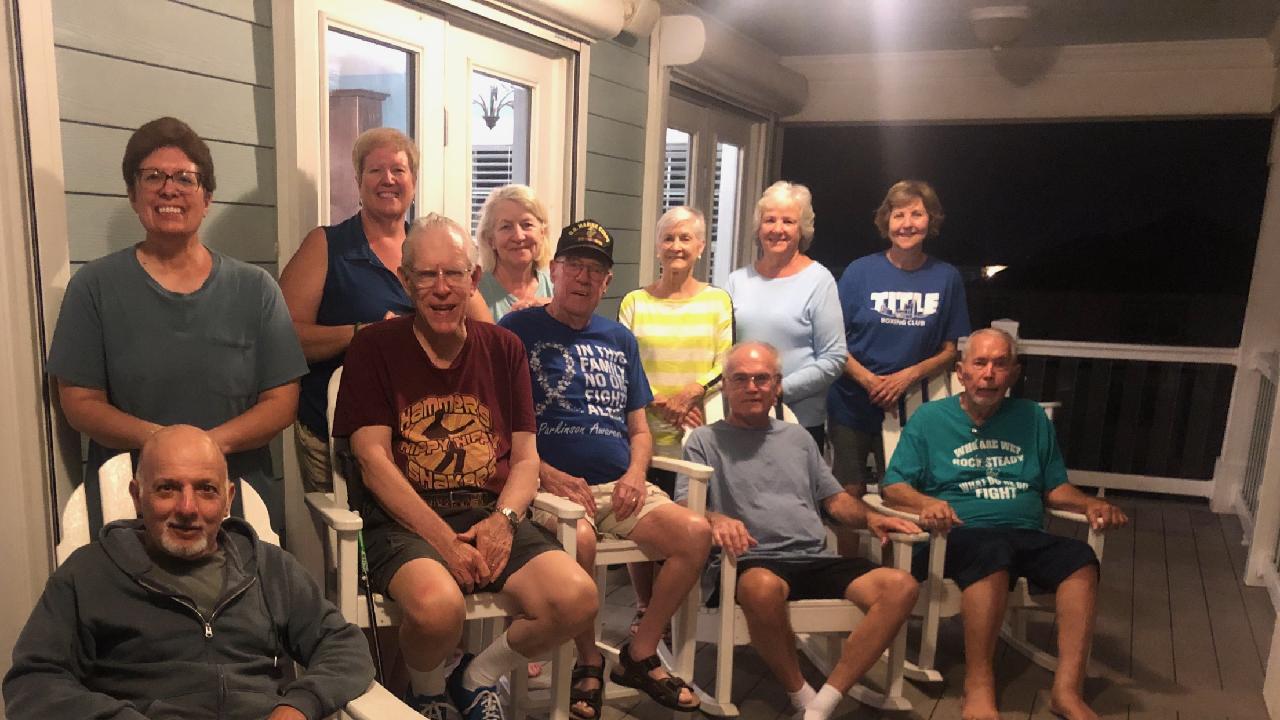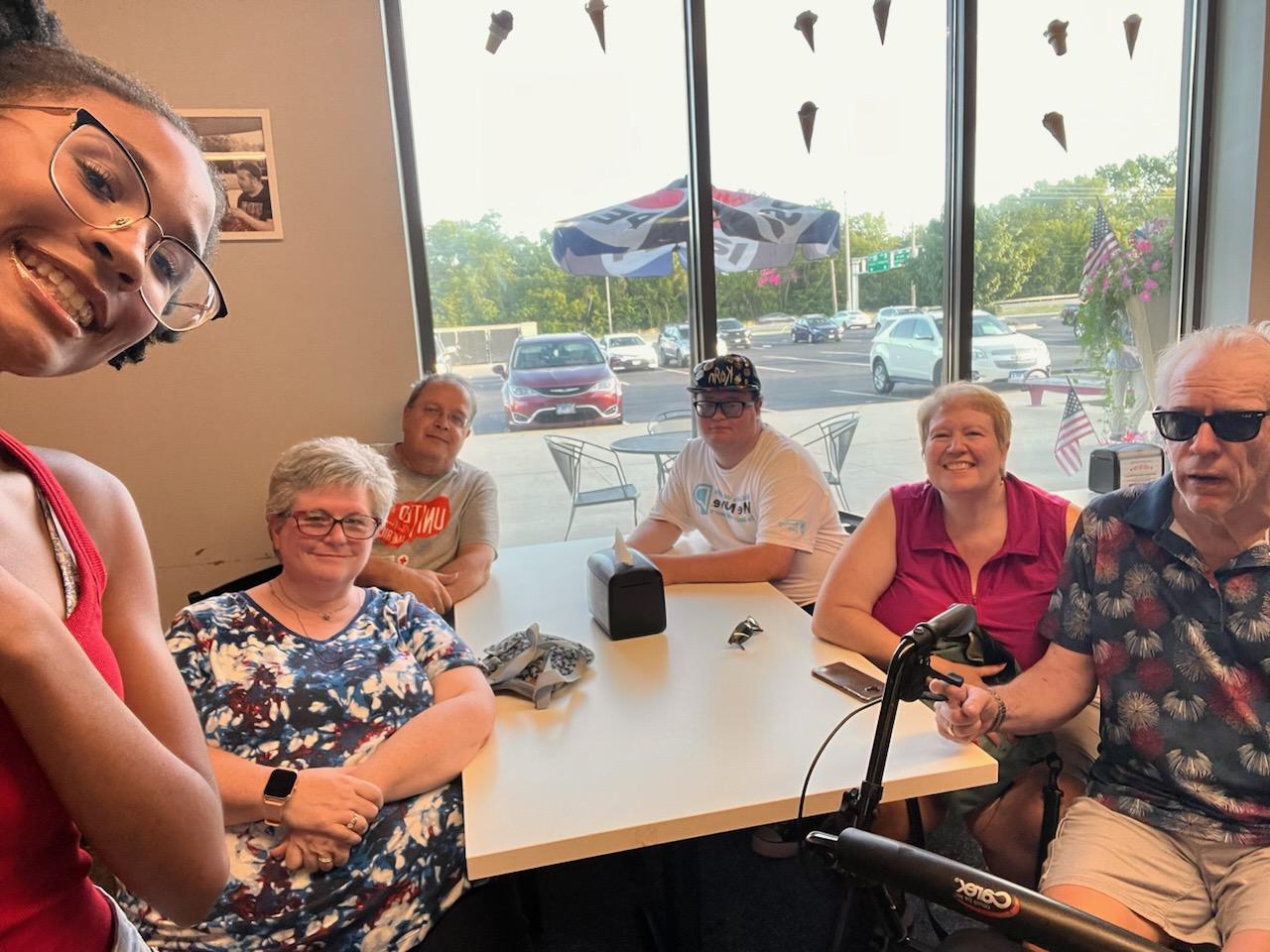Accessibility is a necessity for those with mobility issues
A caregiver's plea for greater accessibility awareness and implementation
Written by |

I’ve always advocated for accessibility for all. For more than 30 years, I worked and volunteered for organizations supporting and encouraging opportunities for people with disabilities. Now, as a caregiver for someone with a debilitating movement disorder that causes mobility issues, accessibility is personal and paramount.
As my husband, Eric, and I manage his Parkinson’s disease, his mobility changes from moment to moment based on his medications and many other factors. Eric goes from walking without assistance, to using a walking stick for additional stability, to using a rollator to get down the hallway or walk through a store. It’s a challenge for him physically and mentally, and it’s a challenge for me to understand and adapt to how this neurodegenerative disease shows up in our everyday lives.
Mobility issues faced by people with Parkinson’s may include freezing of gait, postural instability, muscle rigidity, bradykinesia (slow movements), dyskinesia (uncontrolled, involuntary movements), and dystonia (muscle twisting, curling, and cramping).
Ever since Eric’s diagnosis, I’ve become hypersensitive to accessibility for people with mobility issues. I also see the need when I’m around my 81-year-old father. He doesn’t have Parkinson’s, but he’s slower and more unstable after a couple of falls.
Traveling brings accessibility concerns
Recent trips magnified the need for towns, historic locations, tourist attractions, retail, and other places to ensure accessibility for all.
Last fall, we visited North Carolina’s coast with several couples in our Parkinson’s community. We stayed in an accessible beach house with an elevator. It helped our partners with Parkinson’s and made it easier for spouses to schlep suitcases, groceries, coolers, and gear up four stories.

Friends enjoy a beach getaway. Front row, from left: Tony Reverendo, Eric Hammergren, Chris Crisson, Al Laughner, Larry Woodall; back row, from left: Toni Reverendo, Jill Hammergren, Julie Crisson, Betty Hardy, Dee Laughner, and Faye Woodall. (Courtesy of Jill Hammergren)
Our day trip to a small beach town, however, posed significant obstacles to access despite the town adopting an ADA transition plan. Eric used his rollator and faced numerous challenges accessing many stores and shops.
Owners could easily fix some issues by eliminating crowded entrances cluttered by merchandise on the sidewalks. Inside, the stores were packed with products and overstocked display racks. It was impossible to maneuver those tight spaces with an assistive mobility device. The minimum requirement for accessible pathways and aisles in retail is 36 inches, and they must be clutter-free. None of those stores adhered to that mandate under the Americans with Disabilities Act (ADA).
We also encountered an inoperable, zip-tie-lashed, disability-accessible lift in front of several stores that were otherwise only reachable via stairs. I asked one store owner if the lift was functional, and she said it hadn’t worked for months. She referred me to the building owner and town officials.
After our trip, I contacted the town’s ADA coordinator, who said town representatives and the building owner had met several times regarding the lift. The building owner told me her contractor was waiting for a part. In my follow-up several weeks later, the building owner assured me the lift was fixed, but independent confirmation disputed that.
A popular ice cream shop welcomes visitors along the main street with wooden stairs leading to a wide front porch. It seemed the property could have accommodated a ramp at one end of the porch for all access. However, a sign on the front of the building said the disability entrance was in the rear, but there was no access to the back of the building from the main street.
I climbed the steps and inquired about the disability access. The worker said, “Just drive around the block and come through the alley.” When I said we were walking, she shrugged and said, “Well, you’ll have to walk around the block and come up the alley to use the disability entrance.” We boycotted that ice cream shop.

From left, Sarah, Becky, Stephen, and Garrett Reisinger, and Jill and Eric Hammergren, enjoy some family fun. (Courtesy of Jill Hammergren)
While visiting family in Illinois, we played miniature golf. The first few holes on each course were accessible for all, but as we got farther into the course, Eric’s accessibility vanished, forcing us to help him push the rollator through thick grass, over curbs, and up steps. He was frustrated, and I was angry.
I checked the website after our visit and learned that half the holes on two courses were accessible, but not the entire 18 holes on both courses. The site suggested playing the accessible holes, but they aren’t consecutive, which the ADA requires for social interaction.
Nothing prepared us for this reality. If Eric had been using a wheelchair, he would’ve been stuck. That’s discriminatory and unacceptable.
The idiom “Before you judge someone, walk (roll) a mile in their shoes” is a great reminder to practice empathy. Everyone needs, wants, and deserves access. We must insist on inclusion, accessibility, and universal design for a better world.
Note: Parkinson’s News Today is strictly a news and information website about the disease. It does not provide medical advice, diagnosis, or treatment. This content is not intended to be a substitute for professional medical advice, diagnosis, or treatment. Always seek the advice of your physician or another qualified health provider with any questions you may have regarding a medical condition. Never disregard professional medical advice or delay in seeking it because of something you have read on this website. The opinions expressed in this column are not those of Parkinson’s News Today or its parent company, Bionews, and are intended to spark discussion about issues pertaining to Parkinson’s disease.


John Laurence
I am from London Ontario Canada 🇨🇦 and wish you to know I miss you all the best on your journey and I will be there with you along the way.
Jack Winover
Many restaurants advertise ADA compliant, but in reality are Not !